Tofazzal Hossain (Manik Miah) vs. East Pakistan 18 DLR (1966) 736
A seminal case on press freedom
On 16 June 1966, the Governor of East Pakistan ordered the seizure of the printing press which published the Ittefaq, the most widely read Bangla newspaper at the time. The New Nation Printing Press was owned by the outspoken Bengali journalist Tofazzal Hossain, who was commonly known as Manik Miah. The printing press was abruptly and arbitrarily forfeited by the government after three orders were issued to Manik Miah demanding his newspaper stop the publication of anti-government reports and views. Manik Miah, being the influential editor of the Ittefaq, refused to comply with the orders. The defiance of the Ittefaq led to the government seizing its printing press under the Defence of Pakistan Rules.
On 7 April 1966, the Governor warned the Ittefaq to cease publication of “provocative views, comments, statements and reports which would promote or tend to promote feelings of enmity”. The attached schedule prohibited the following:-
(i) Views, comments, statements and reports in any manner or form which may or are likely or intended to infringe the sovereignty of the State of Pakistan or undermine its integrity.
(ii) Views, comments, statements and reports alleging exploitation of one part of the country for the benefit of any other part or for the benefit of any class or classes of persons.
(iii) Views, comments, statements and reports which in any manner or form create or are likely or intended to create feelings of enmity of hatred between different classes of citizens.
(iv) Views, comments, statements and reports relating to student strikes, student agitation, student unrest, student meetings, student grievances of various kinds and governmental measures in relation thereto.
Subsequent orders on 2 June 1966 and 7 June 1966 demanded the Ittefaq withhold any coverage of the Awami League’s hartal and protest day on 7 June. The governor sought to ban “news, views, statements, reports or photographs concerning or relating to the observance of hartal and protest day in East Pakistan on 7th June, 1966 and governmental measures taken in relation thereto”. The Ittefaq defied the Governor. As the most leading, independent and outspoken newspaper in East Pakistan, succumbing to the governor meant surrendering press freedom for the Bengali press.
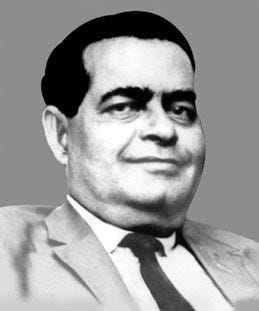
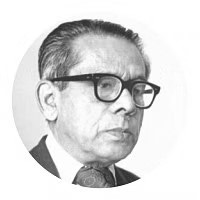
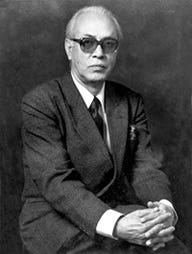

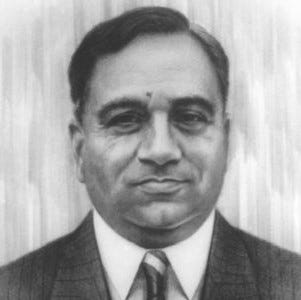
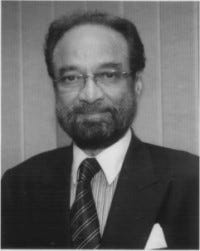
In the face of the newspaper’s defiance, the Governor issued an order of forfeiture under Rule 52 of the Defence of Pakistan Rules. On 16 June 1966, the printing press was taken over by the provincial government. The newspaper went to court, where it was represented by Mahmud Ali Kasuri, Kamal Hossain, M. Amir-ul-Islam, K. S. Nabi, Fariduddin Ahmed, Mozammel Huq Khan and Faqeer Shahabuddin Ahmed.
In court, a bench compromising of Justice A. S. M. Sayem, Justice B. A. Siddiky, Justice M. R. Khan, Justice S. D. Ahmed and Justice Abdulla delivered a ruling on the legality of the orders in question. East Pakistan was placed under emergency rule with wartime legislation still in force even though the 1965 war with India had ended. In 1966, the Awami League also began the Six Point Movement for a federal democracy.
During the court proceedings, the case revolved around whether the Ittefaq was given a chance to defend itself before its seizure by the government. Lawyers argued that the Ordinance under which the Defense of Pakistan Rules were framed allowed the scope of adjudication in matters of forfeiture. The provincial government decided to seize the press without providing a ‘show cause’ notice to the Ittefaq. These actions were also contrary to the principles of press freedom. The framing of the rules was also questioned because the Ittefaq’s lawyers alleged that the Ordinance was not followed in letter and spirit while crafting the rules.
The petitioners, represented by Mahmud Ali Kasuri and Kamal Hossain, argued that the seizure of the printing press was an attempt to throttle an opposition newspaper. Dr. Kamal Hossain argued that the seizure was a malafide, or bad faith, move against a widely perceived pro-opposition newspaper.
The Attorney General referred to the case of Emperor v. Sibnath Banerji and others AIR 1945 Privy Council 156. The Defence of Pakistan Ordinance mirrored many of the provisions of the Defence of India Act, which was enacted by the British colonial regime in 1915 to suppress the freedom movement in British India. Lawyers debated over how to interpret the Defence of Pakistan Ordinance.
In the seminal case, the court deliberated on the matter of legislative interpretation. Justice Siddiky also praised the contributions of the Attorney General and two lawyers for the petitioner, noting that “Before I part with the case, I cannot help saying that the learned Attorney General, Mr. Mahmood Ali Kasuri and Mr. Kamal Hossain were of great assistance to the Court and it was a pleasure to listen to the high standard of argument of these learned Members of the Bar who so ably conducted the cases of the respective parties upholding the dignity of the Bar and Bench. I am happy to say that my learned brothers who sat with me hold no different view in these respects”.
Natural justice
Justice Siddiky commented that “The principle of natural justice has now been extended by judicial pronouncement to administrative actions of executive authority”. He referred to the observations made by Justice Hamdoor Rahman in the case of Saiyyid Abul A'la Maudoodi & others vs. The Government of West Pakistan and another 1965 17 DLR SC 209.
Justice Ahmed referred to the case of University of Dacca v. Zakir Ahmed (1966) 18 DLR SC 422, in which the court held that “whenever any person, or body of persons, is empowered to take decisions, after ex post facto investigation into facts which will result in consequences affecting the person, property or other rights of another person, then, in the absence of any express words in the enactment giving such power, excluding the application of the principles of natural justice the Courts of law are inclined generally to imply that the power so given is coupled with a duty to act in accordance with such principles of natural justice as may be applicable in the facts and circumstances of a given case”.
Justice Ahmed also remarked that “This is the principle embodied in the maxim audi alteram partem and has been applied by this Court in other cases where orders passed by administrative tribunals or authorities, affecting the rights of citizens, in point of property, or other rights, had been passed, without giving an opportunity for defense to the person concerned. "No one can be condemned unheard", is one of the settled principles of law, and such a principle will be read into the relevant law”.
Justice Sayem held that “the order of forfeiture is bad as it has been made without affording the petitioner an opportunity of showing cause as required by the principles of natural justice”. The case was won by the Ittefaq on the grounds of natural justice.
Legislative interpretation
The issue before the court was whether the Ordinance made it mandatory for adjudication to be part of the forfeiture process. Rule 52 would be null and void if it disregarded the letter and spirit of the Ordinance. Another issue was whether the provincial government had the authority to forfeit the printing press, given the centralized nature of the Pakistani state at the time.
Justice M. R. Khan held that “The universally accepted view […] is that it is the duty of the Court to apply the recognized canons, of interpretation of statutes and thereby to ascertain the real intention of the Legislature [in] enacting a particular provision”. Justice Khan cited Butler v. Fife Coal Company 1912 Act 149 at 178-179 in which Lord Shaw held that “The commending principle in the construction of a statute passed to remedy the evils and to protect against the dangers which confront or threaten persons or classes of His Majesty's subjects is that, consistently with the actual language employed, the Act shall be interpreted in the sense favorable to making the remedy effective and protection secure. This principle is sound and undeniable”. Justice Sayem also touched on the importance of giving a generous interpretation to emergency laws. On the other hand, Justice Abdulla made a distinction between Sovereign Legislation and Subordinate Legislation. The judges ultimately differed on the particular dispute of the case regarding Rule 52 of the Defence of Pakistan Rules.
Legacy
The Pakistani government attempted to nationalize the Ittefaq again on 17 November 1966. The New Nation Printing Press was again seized by an order of forfeiture. The attempted nationalization of the publisher was challenged in the case of Tofazzal Hossain, through his son and constituted Attorney, Mainul Hossain vs. The Province of East Pakistan and others 19 DLR (1967) 528.
The office of the Ittefaq was burnt down by the Pakistan Army in the early phase of Operation Searchlight in March 1971 during the beginning of the Bangladesh Liberation War. In December 1971, the prominent Ittefaq journalist Serajuddin Hossain was killed during the massacre of intellectuals by anti-liberation forces. The Ittefaq played a key role in the liberation struggle of Bangladesh. An entry in Banglapedia, which is Bangladesh’s national encyclopedia, describes how the Ittefaq became the “voice of the people of East Bengal” in the 1960s.
Bangabandhu Sheikh Mujibur Rahman remembered Manik Miah during an address to the Constituent Assembly of Bangladesh on 10 April 1972, remarking that Bangladesh should commemorate “the one who struggled through the pen – Tofazzal Hossain, our Manik Bhai”. The Manik Miah Avenue in front of parliament in Dhaka is named after the founding editor of the Ittefaq.




